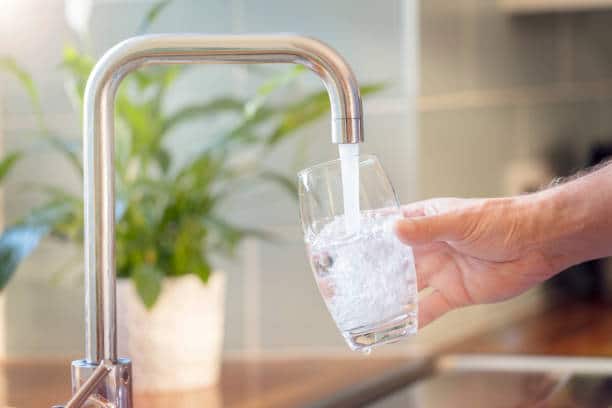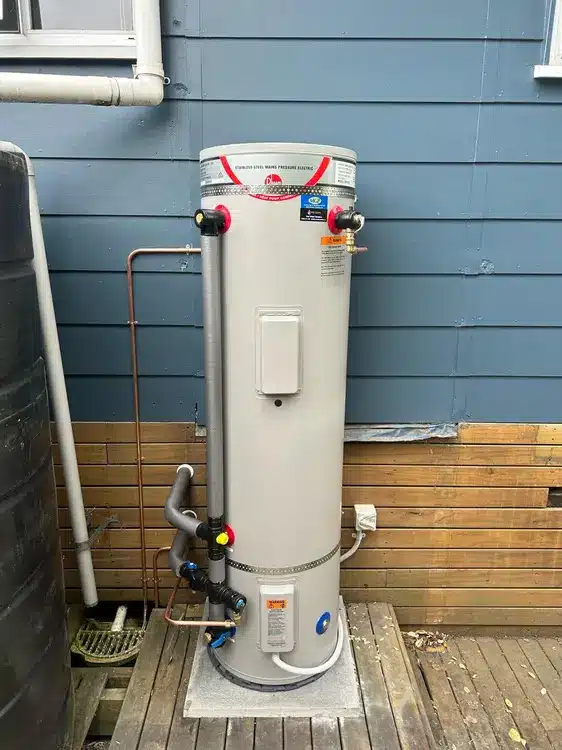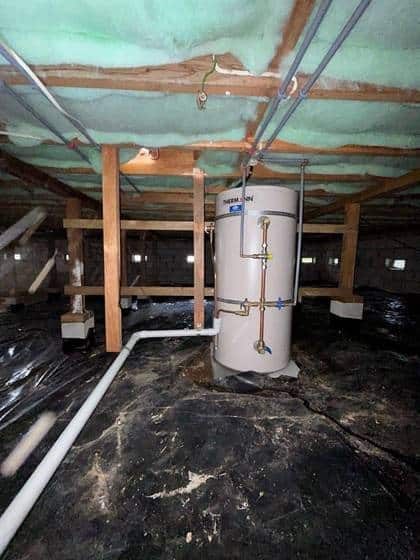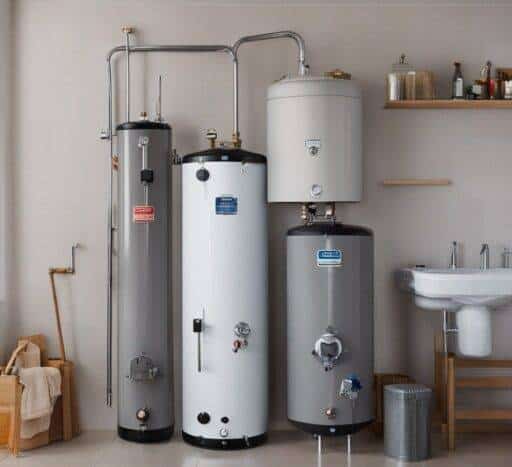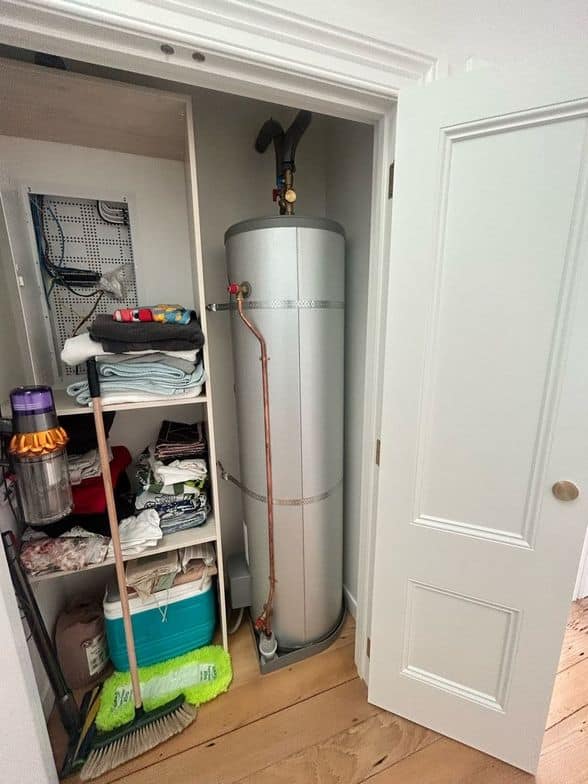The Effects of Hard Water
Here are some signs it’s time to flush your hot water heater:
Discoloured or rusty water – Sediment buildup causes rusty coloured water when small particles enter your water supply. Flushing removes the sediment and rust.
Strange smells – Rotten egg odours or other unpleasant smells indicate bacteria buildup in your tank. Flushing sanitises your tank.
Rumbling or banging noises – Sediment accumulation in the tank bottom causes odd noises as the water heater runs. Flushing quiets these disruptive noises.
Higher energy bills – Sediment buildup reduces heating efficiency, increasing energy usage and costs. A flush water heater runs optimally.
Older system – Water heaters over 4-5 years old benefit from seasonal flushing. Flushing extends the lifespan of aging systems. But if your hot water system is more than 15 years old, you should go for a new hot water cylinder.
What You Need To Flush a Water Heater
Hard water is not harmful to human health. However, it can cause several nuisance issues:
Scale buildup
The calcium and magnesium in hard water can leave white mineral deposits and films on everything it touches. You may notice scale buildup on faucets, showerheads, and appliances over time. This can clog plumbing fixtures and reduce efficiency. Sediment buildup can keep you away from getting the most out of your hot water cylinder as well.
Skin and hair issues
Hard water makes it more difficult to lather soap and shampoo. Bathing in hard water leaves residual soap scum on skin and can cause dry skin and tangled, dull hair.
Spotty dishes
Dishes washed in hard water end up with white film or spots. Food dries out instead of shining. Hard water interferes with the sudsing and cleaning action of dish soap.
Limescale in appliances
Over time, scale buildup in water heaters and boilers reduces heating efficiency and lifespan. Scale in pipes restricts water flow.
Water Softening Solutions
To combat the issues caused by hard water, many households invest in a water softener system. Water softeners use an ion exchange process to remove the calcium and magnesium ions that cause hardness.
In exchange, the softener releases an equal number of sodium (or sometimes potassium) ions into the water supply. The result is water with zero mineral hardness but a slight increase in sodium content.
Water softeners typically contain a mineral tank filled with small resin beads. Hard water runs through the resin beads, and the sodium ions are swapped for the hardness minerals. After this ion exchange process, the water leaving the softener system is soft.
Over time, the system will run out of sodium ions. At that point, the resin beads become coated with hardness minerals. The softener then goes through a regeneration cycle to flush the minerals out and recharge the beads with sodium.
Benefits of Soft Water
Installing a water softener provides the following benefits:
Prevent scale buildup – With soft water flowing through your pipes and water heater, you’ll avoid the mineral deposits and scale that shorten appliance lifespan.
Reduce soap scum – Soft water creates suds easily and rinses cleanly without residue. Enjoy lush lather and squeaky-clean skin and hair.
Shinier dishes – Glasses and dishes wash up sparkling clean in soft water, without spots or film.
Protect plumbing – Scale buildup in pipes eventually leads to clogs and leaks. Soft water keeps your plumbing clear.
Use less detergent – Soft water suds easily, so you can cut back on expensive laundry and cleaning products. A little goes a long way!
Lengthen appliance life – Preventing scale buildup through water softening extends the life of water heaters, coffeemakers, steam irons, and more.
Choosing a Water Softener
With so many water softener brands and models available, it can be tricky to select the right system for your household’s needs. As you evaluate your options, keep the following factors in mind:
Hardness level – Have your water tested to determine the exact level of hardness. The softener capacity must be sized to handle your highest tested hardness level.
Household size – The system flow rate, resin tank size, and regeneration cycles depend on how many people live in the home and water usage rates.
Features – Look for easily adjustable settings, bypass valves for maintenance, and hassle-free salt refill. Outdoor installations will need weather-resistant housing.
Salt efficiency – Softener salt (sodium chloride) costs add up over time. Systems with accurate meters use less salt. Some models use potassium chloride as a sodium-free alternative.
Warranties and certifications – Choose an established brand with a good warranty and certification. This ensures optimal performance and safety.
Maintaining Your Water Softener
Investing in a water softener is just the first step to enjoying the benefits of softened water in your home. Maintaining your system properly is also essential for optimal performance. Here are our top water softener care tips:
Check the Salt Level Frequently
The salt in the brine tank enables the softener to regenerate. Letting salt levels run too low reduces overall system efficiency. Visually inspect the brine tank every 2-3 weeks to make sure adequate salt remains. Refill with salt pellets when the level drops below a quarter tank.
Clean the Brine Tank
Occasionally Salt, silt, dirt and other debris settling in the brine tank can clog softener parts over time. About twice per year, empty out any remaining salt and scrub down the walls and bottom of the brine tank by hand. Rinse thoroughly before refilling with salt.
Sanitise Resin Beads Periodically
On an annual basis, sanitise the resin beads inside the mineral tank to prevent bacterial buildup. Simply fill the brine tank with water and add 1-2 cups of household bleach. Initiate a manual regeneration cycle so the sanitising solution flows through the resin bed.
Follow these tips and you can continue to experience all the benefits that soft water can offer.
Contact Hot Water Solutions Today!
Use our contact us page to reach us and we will be more than happy to discuss your hot water situation. Or give us a call on 0800 497658.
At Hot Water Solutions all we do is hot water!

